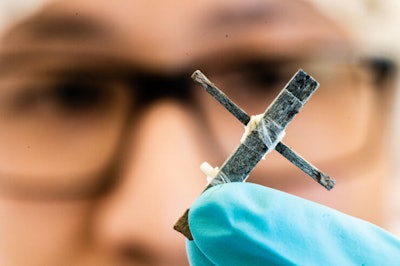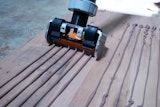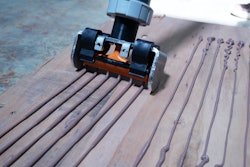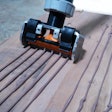
Researchers at Linköping University and the KTH Royal Institute of Technology in Linköping, Sweden, announced they have developed the first functional electrical transistor made of wood.
Transistors regulate electrical currents that pass through them and also function as a power switch and are a “crucial component” in modern electronic devices. An electrical transistor made of wood could have major implications.
 THOR BALKHED
THOR BALKHED
“We’ve come up with an unprecedented principle,” stated Isak Engquist, senior associate professor at Linköping University. “Yes, the wood transistor is slow and bulky, but it does work, and has huge development potential.”
Applications could include the regulation of “electronic plants,” another area of research at the university that integrates electronics in plants for “optimization and monitoring.” Other larger applications for a wooden transistor are unknown.
“We didn’t create the wood transistor with any specific application in mind. We did it because we could,” Engquist added. “This is basic research, showing that it’s possible, and we hope it will inspire further research that can lead to applications in the future.”
Researchers used balsa wood to create the transistor, removing the lignin and leaving long cellulose fibers with channels where the lignin had been. “These channels were then filled with a conductive plastic, or polymer, called PEDOT:PSS, resulting in an electrically conductive wood material,” according to Linköping University.























